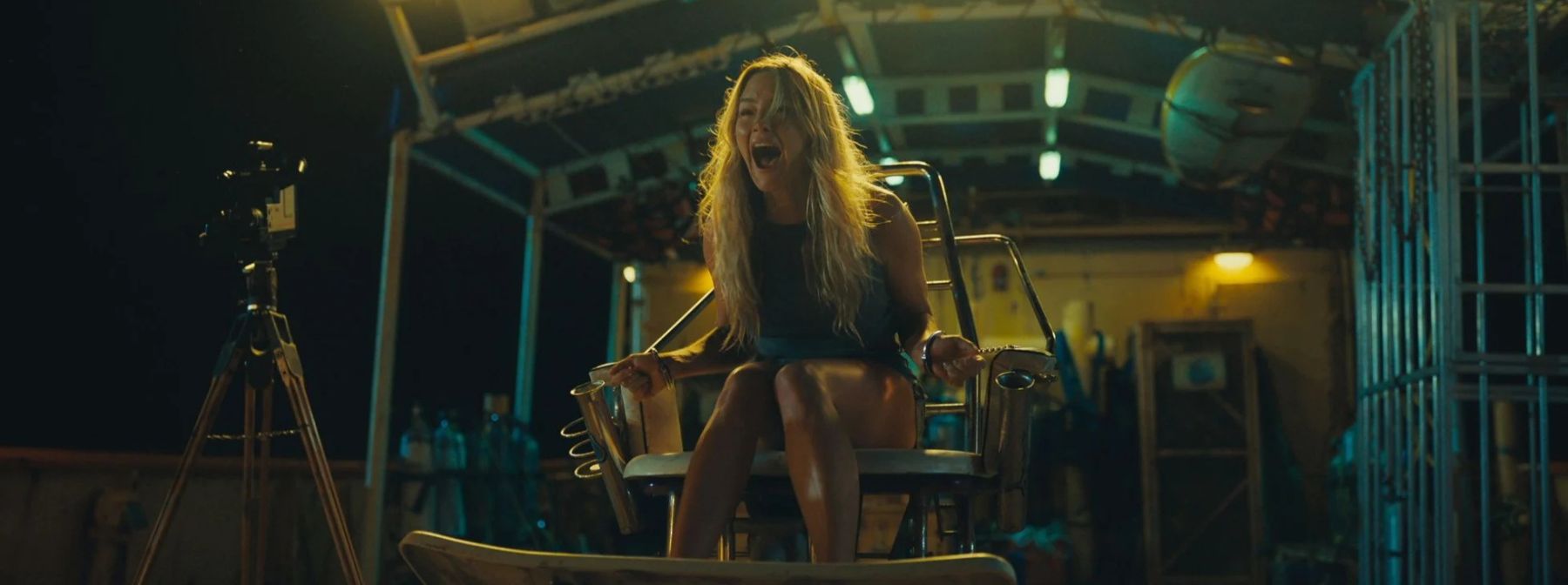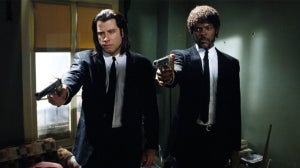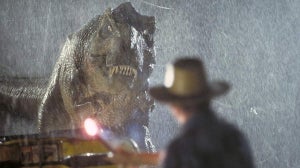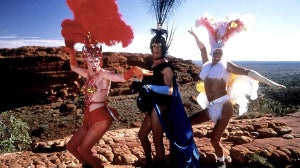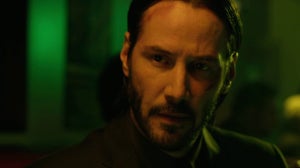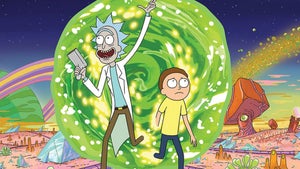
He explained to Zavvi: “Jaws is a masterpiece, but it did a gross disservice to sharks in that they’re now perceived as indiscriminate killers, and every film that followed in its wake continued the tradition of having them attack humans for no real reason, reinforcing this false perception of them. The thing that was most exciting about the Dangerous Animals script was how it cleared up that misconception and pointed the finger at the real monster: mankind.
“The sharks are still incredibly dangerous, but that’s only because they’re manipulated by man – everything that happens here is because the waters are chummed for cage diving, which does reflect how most attacks now happen because sharks associate boats with food. I found it fascinating as a premise, as it tied into the horror of a shark movie without demonising the shark; there’s a motivation for it, they’re not a monster hunting humans for fun.
“I thought it was a great way to cut through the shark film clutter, because everybody has seen that version of the shark film a gazillion times – and on top of that, it’s a different kind of serial killer movie. He doesn’t wield a machete; he uses sharks as his weapon.”
That killer is Jai Courtney’s Tucker, a guide who takes tourists on Australia’s Gold Coast swimming with sharks, cherry picking an unlucky few to feed to the animals below the waters. As a survivor of a vicious shark attack when he was a child, he’s now psychologically wired to think he can tame the beasts with ample human flesh, but after kidnapping American surfer Zephyr (Yellowstone star Hassie Harrison) is finally faced with a counterpart who won't let herself be lowered underwater that easily.
Byrne, who previously made cult films The Loved Ones and The Devil’s Candy, has never directed a movie he didn’t personally write until now. Nick Lepard’s screenplay, however, really struck him as an ingenious idea he can’t believe nobody has attempted before.
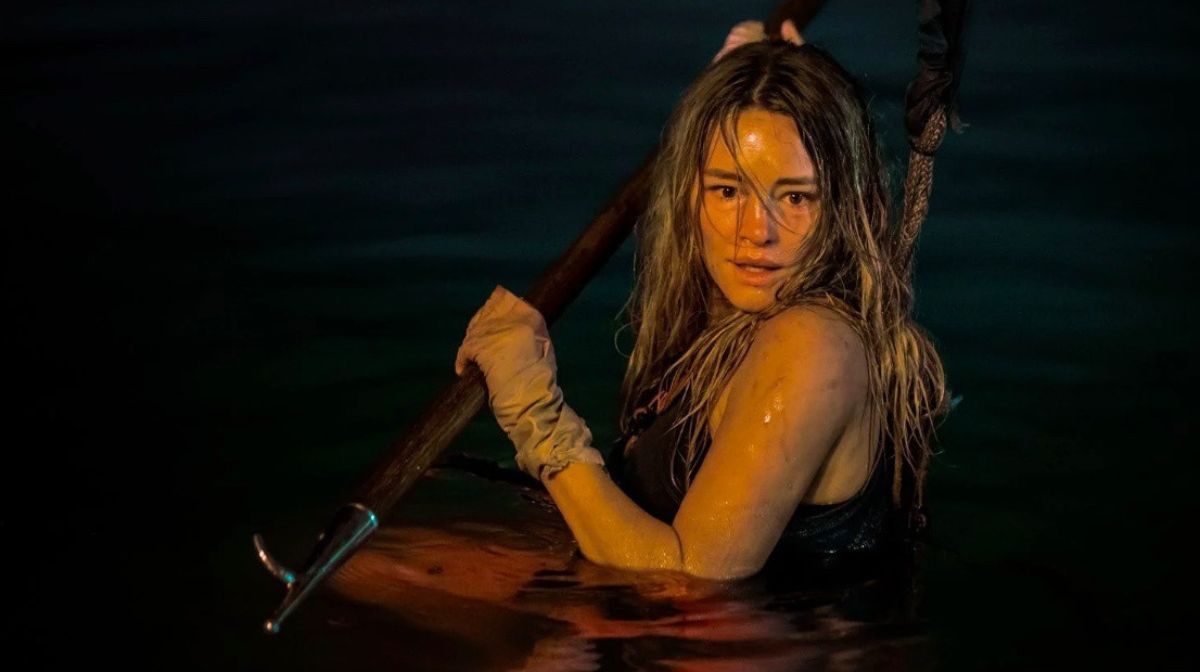
“That combination of serial killer and shark film felt like a great high concept that should have already been made; it sounds like the kind of legendary pitch a Hollywood producer writes on a napkin during a mythical lunch. Serial killers are already my kind of thing, as I’m interested in the extreme nature of humanity, but a shark film was a new beast – this felt like one of the first since Jaws that shared the same rich characterisation.”
You could argue that Dangerous Animals has far less in common with the typical shark movie than it does a very distinctively Australian brand of horror, where tourists are typically treated as prey for a murderous threat.
“You could definitely call this Wolf Creek on water!” Byrne added. “I think that many Australian horrors in this vein play on that kind of larrikinism, when you can’t work out whether this lively, boisterous guy is joking in a friendly or dangerous way – it's a kind of cultural identity that’s hard to read if you’re not from Australia, where we instinctively know whether someone is taking the p**s.

“The Gold Coast is a great place to explore this, because it’s a tourist mecca, but it’s also a place where people with criminal records go to hide from the world – there's a duality within this location that Jai’s character also has. However, I think the main reason tourists are killed off in so many of our horror movies is because they have a weird perception that they’ll get off the plane and something will kill them, whether it’s a spider or a snake, or something else!
“We’re a big country with a population just over 20 million, meaning there’s so much wide-open space to disappear, and a lot of surrounding oceans too. It’s great to be able to join that pantheon of Aussie horror in exploiting those fears...”
Finding an actor whose charisma could toe the line between welcoming and terrifying was no simple task, but Courtney was the perfect killer in the director’s eyes.
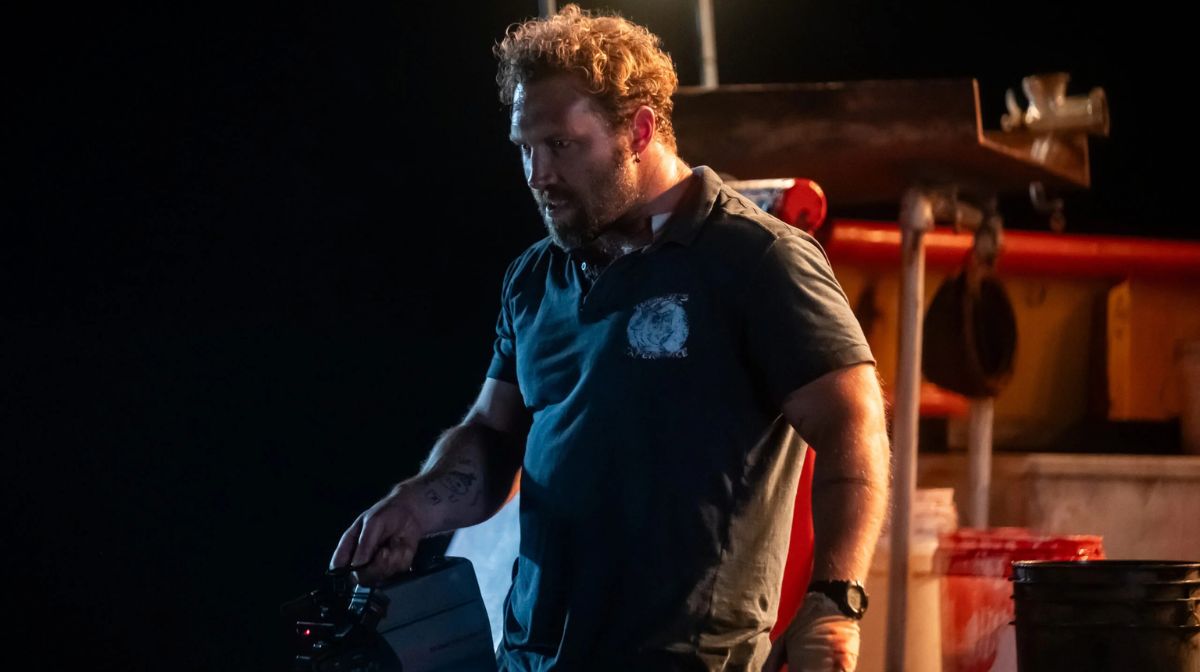
“He’s always been solid as a rock, even in big franchise films that weren’t as good as he was! I already knew he was wildly charismatic from those movies, but when I first spoke to him, I discovered he has this wickedly gleeful, almost kind of semi-dangerous charm; he’s a wonderful guy and a team player, but he has a zaniness that could be intimidating.
“I thought that with him on board, this was a great opportunity for him to have his iconic antagonist, like Patrick Bateman or Annie Wilkes - a force of nature who takes centre stage, and makes the audience love to hate them. Those are characters and performances that are embedded in your brain for life after seeing them, and this also had the potential to be a villain you will carry with you.
“Horror is the greatest playground for a performance you can have because of the life and death stakes, especially when the characterisation is as rich as it was in the script. Jai understood that, and he managed to capture the rogue charisma and the broken child inside the man without stepping into caricature – I can’t imagine anyone else in that role.”
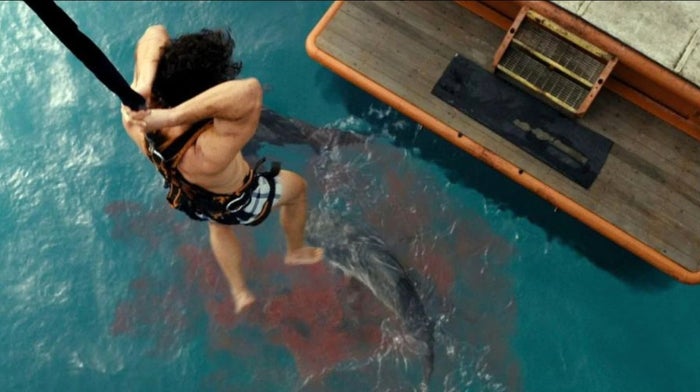
Most of Tucker’s victims are women, however, Byrne slightly disagrees on whether the film can be seen as a social commentary on toxic masculinity, arguing that the character is more terrifying because he doesn’t neatly fit into that characterisation.
“It’s absolutely true that this movie is a Trojan horse hiding those themes, but I think the character’s brokenness expands beyond that note, which is all thanks to Jai’s performance. I’d say rather than representing toxic masculinity he represents the toxicity of the past in general, in that he films his victims on video tapes and keeps them all VHS as a sort of outdated trophy.
“Zephyr is also a damaged character in that she’s jumped from foster home to foster home, and presumably hasn’t had many great relationships with men, which is why we have Moses played by Josh Heuston in the movie with her too. He’s designed as the anti-Tucker, which means that you could see him as the antidote to toxic masculinity; he’s what men should be like, not the shark killer!”
Dangerous Animals is released in UK cinemas on Friday, 6th June.
